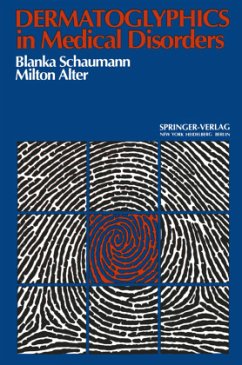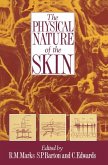The skin on the fingertips and palmar and plantar surfaces of man is not smooth. It is grooved by curious ridges, which form a variety of configurations. These ridge configurations have attracted the at tention of laymen for millenia. They have also evoked the serious interest of scientists for more than three centuries. The anatomist Bidloo provided a description of ridge detail in the seventeenth cen tury. Since then, additional information has been added by anthro pologists, biologists, and geneticists. For the last century, the fact that each individual's ridge configurations are unique has been uti lized as a means of personal identification especially by law enforce ment officials. Widespread medical interest in epidermal ridges de veloped only in the last several decades when it became apparent that many patients with chromosomal aberrations had unusual ridge formations. Inspection of skin ridges, therefore, promised to provide a simple, inexpensive means for determining whether a given patient had a particular chromosomal defect. However, the promise was only partially fulfilled because of the inherent variability of skin ridge configurations. It was possible to draw conclusions about ridge ab normalities in groups of patients but not always in a given individual. Patients and clinicians became somewhat disenchanted with the clinical value of studying ridges.
Hinweis: Dieser Artikel kann nur an eine deutsche Lieferadresse ausgeliefert werden.
Hinweis: Dieser Artikel kann nur an eine deutsche Lieferadresse ausgeliefert werden.








